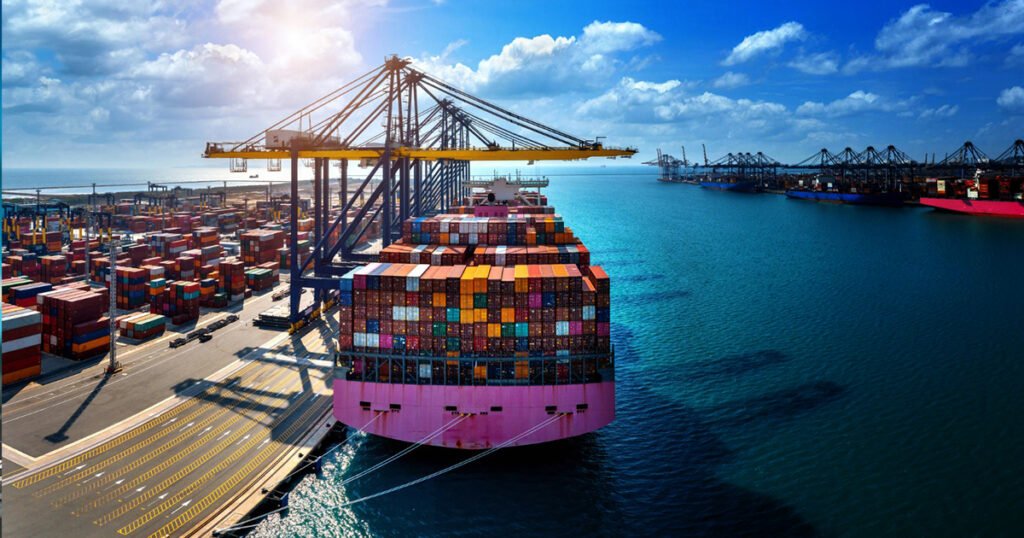South Africa stands on the brink of a new economic era, with promising signs of growth and recovery that have global investors taking notice. A coalition government, which emerged after the African National Congress (ANC) lost its parliamentary majority for the first time since 1994, has paved the way for a fresh wave of optimism in the country’s financial sector.
This shift has reignited interest from multinationals and spurred unprecedented confidence in South Africa’s economic future. As JPMorgan Chase & Co. projects, this positive sentiment could trigger a substantial increase in Initial Public Offerings (IPOs) and fund-raising activities, bringing a long-awaited boost to Africa’s largest economy.
The ANC’s electoral loss, a monumental shift in South African politics, has brought about an alliance between the center-right Democratic Alliance and several smaller parties, creating a coalition that has shown promise in tackling some of the long-standing challenges facing the country.
Since May, this new coalition has rolled out policies favoring private sector engagement in key industries, including electricity, freight rail, and ports. This shift toward deregulation and open markets has been warmly welcomed by investors, who are now more optimistic about the potential for economic revitalization.
The coalition’s focus on reforms has ignited investor confidence, and the signs are already visible. With the rand rallying, bond yields improving, and the Johannesburg Stock Exchange (JSE) rising by over 20% in dollar terms since June, South Africa’s markets are signaling a fresh start. This newfound political and economic stability is critical, as it provides the ideal environment for companies to consider public offerings, boosting liquidity in local markets and driving economic growth.
Investment Surge and Positive Market Reactions
Following the coalition’s formation, multinationals and domestic corporations alike have reconsidered their commitments to South Africa. There was a series of announcements from significant international players such as Qatar Airways and Anglo American, who have committed substantial investments to the country. For instance, Qatar Airways has invested in South African airline SA Airlink, solidifying a crucial aviation partnership that brings both capital and job stability to the country. Anglo American, a global mining giant, announced a $625 million iron-ore project that promises to create thousands of jobs and boost export revenues.
Moreover, local firms are also ramping up investments. ArcelorMittal decided to retain two steel plants that were initially slated for closure, preserving over 80,000 jobs and stabilizing an essential manufacturing sector. Additionally, an auto parts supplier for Toyota Motor Corp., which had contemplated moving its operations out of South Africa, has reaffirmed its commitment to staying, demonstrating increasing confidence in the new administration.
These moves signal a turning point, showing that South Africa is once again being viewed as a stable and profitable investment destination. This was brought to bear when JPMorgan’s South Africa Managing Director, Edward Bell, commented that the improving economic conditions and market sentiment create an ideal scenario for increased primary market activity, especially IPOs, as early as 2025.

The Johannesburg Stock Exchange’s Role in the IPO Boom
The Johannesburg Stock Exchange (JSE), one of the largest stock markets in Africa, is eager to capitalize on this favorable environment. The JSE is working to attract inward and secondary listings from companies with ties to Africa and sub-Saharan regions, offering a platform for them to access international capital while strengthening the local market.
This proactive stance from the JSE is especially significant as it seeks to reverse the trend of foreign investors who have sold off over $5.5 billion in South African stocks earlier this year.
As confidence in the economy grows, the JSE has seen a resurgence in interest in domestic equities. Banking stocks, such as FirstRand, Standard Bank Group, and Capitec Bank Holdings, have each seen increases of over 25% since June.
The JSE’s efforts to entice African and multinational companies could further diversify the market, bringing more visibility to the exchange and allowing it to become a preferred listing destination for companies looking to enter the African market.
Increased IPO activity is expected to drive growth across sectors. Major companies, both local and international, are already weighing the benefits of public listings in South Africa. Coca-Cola, for example, is considering listing its African bottling business, which analysts estimate could reach a valuation of $8 billion. Such a high-profile IPO would not only be a testament to the newfound optimism in the South African market but would also likely draw attention from investors across the globe.
Similarly, local players and companies from neighboring countries with substantial operations in South Africa are expected to consider IPOs. A well-performing equity market will enable these firms to raise the capital they need for expansion, potentially stimulating growth in sectors such as financial services, mining, manufacturing, and agriculture. This trend could attract global investors to South Africa, leading to an inflow of foreign capital and boosting the local economy.
Economic Indicators Show Promising Trends
The latest economic indicators for South Africa signal a positive shift, pointing toward a potential economic recovery after years of stagnation. JPMorgan projects that the country’s GDP will grow by 1% in 2024 and 1.4% in 2025, an improvement from the average growth of less than 1% seen over the past decade. While modest, these figures suggest a more optimistic economic environment, one where businesses are better positioned to expand and new investment opportunities are more likely to emerge.
Supporting these growth forecasts is an increase in debt issuance across sub-Saharan Africa, underscoring a renewed interest from investors in the region’s fixed-income markets. South Africa, with its relatively stable economic outlook, has become a focal point for emerging market debt investors seeking competitive yields and long-term value. These investors are attracted not only by South Africa’s yield potential but also by a broader trend toward stability in the region’s financial landscape.
This increased demand for sub-Saharan debt brings several advantages to South Africa, creating favorable borrowing conditions for both the government and the private sector. With lower borrowing costs, South African businesses can access much-needed capital to fuel expansion and innovation, while the government can invest in essential infrastructure and development projects. This dynamic not only supports economic growth but also fosters a more resilient financial system, helping to secure South Africa’s place as a promising emerging market in the years to come.
Challenges Remain Despite Optimism
While the outlook is bright, challenges remain. The legacy of corruption, crime, high unemployment, and ongoing issues with power outages continue to pose risks to the country’s economic stability. Many investors are still cautious, particularly given South Africa’s recent history of mismanagement under the ANC-led government. The coalition government must continue to implement reforms and improve transparency if it is to retain the confidence of both domestic and international investors.
Moreover, South Africa’s reliance on commodities as a primary revenue stream makes the economy vulnerable to global market fluctuations. However, the diversification of industries through new policies aimed at opening up sectors like energy, infrastructure, and transport can potentially reduce this vulnerability and provide a buffer against global economic downturns.
The anticipated IPO surge is expected to positively impact South Africa’s small and medium-sized enterprises (SMEs) as well. As larger corporations go public and raise capital, SMEs can benefit from the trickle-down effect in the form of job creation, new business opportunities, and increased demand for goods and services. Additionally, the increased capital flowing into the market could lead to improved access to financing options for SMEs, a sector that has historically struggled with funding accessibility.
The coalition government’s pro-business stance has already begun to ease some of the regulatory burdens that previously hindered SME growth, making it easier for smaller companies to compete in the market. An influx of IPOs and renewed economic optimism could further catalyze this growth, encouraging innovation and entrepreneurship across various industries.
The Future of South Africa’s IPO Market
Looking ahead, the next few years will be crucial for South Africa’s IPO market and broader economic recovery. Should the coalition government maintain its business-friendly policies and continue attracting foreign direct investment, the JSE could see a period of substantial growth and increased activity. The positive sentiment surrounding the South African market, if sustained, could transform the country into a financial hub for African companies looking to access global capital.
To fully capitalize on this momentum, the government and financial institutions must remain committed to supporting growth-friendly policies. Initiatives aimed at strengthening infrastructure, reducing crime, and ensuring reliable energy supply will be essential to maintaining investor confidence and encouraging long-term investment.
South Africa’s coalition government has sparked renewed optimism in the country’s economic future, drawing interest from multinational corporations and driving the stock market to impressive gains. The projected surge in IPOs and fundraising activities reflects this optimism and is poised to bring substantial benefits to Africa’s largest economy. As the JSE positions itself as a top listing destination, both regional and international companies are eyeing the market, with high-profile IPOs potentially on the horizon.
However, challenges remain. For South Africa to continue its upward trajectory, the coalition government must stay committed to reform, address the country’s systemic issues, and work towards a stable and transparent business environment. If successful, the coalition will not only drive an IPO boom but also foster sustainable economic growth, creating new opportunities for South Africans and solidifying the country’s role as a leading financial center in Africa.









